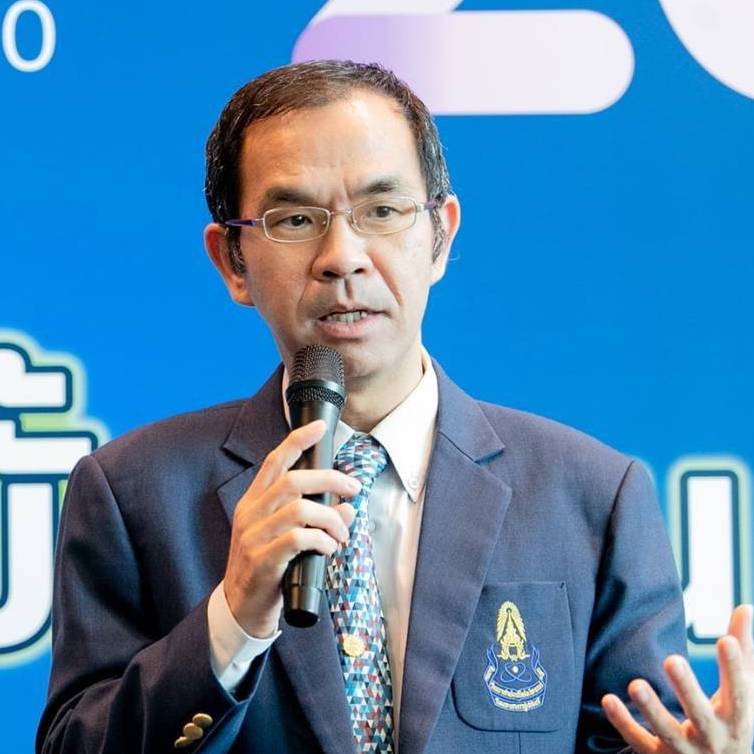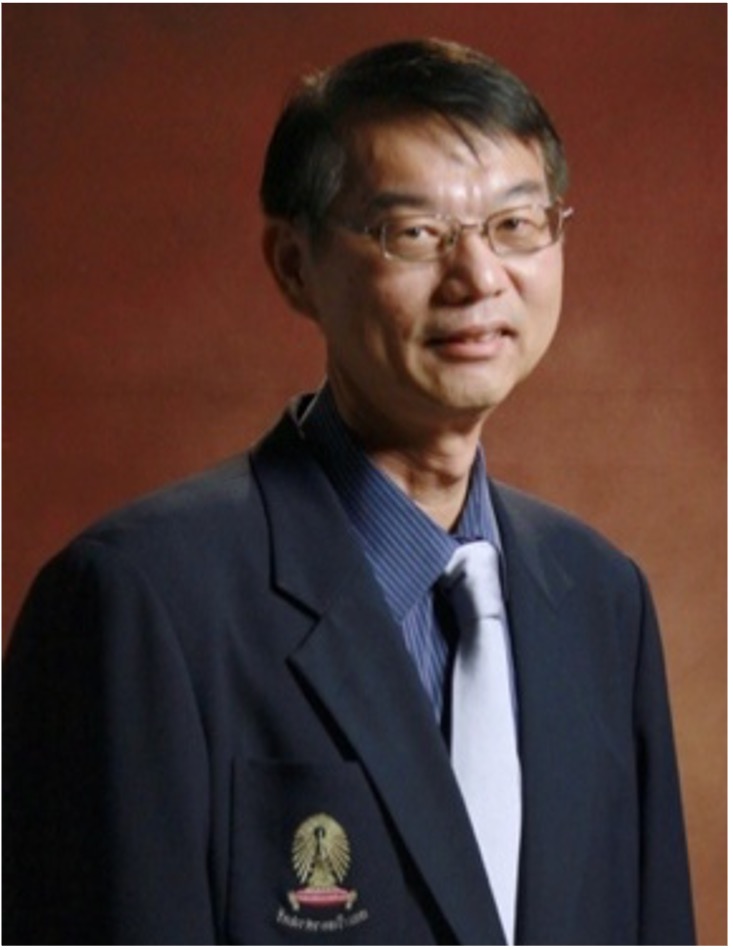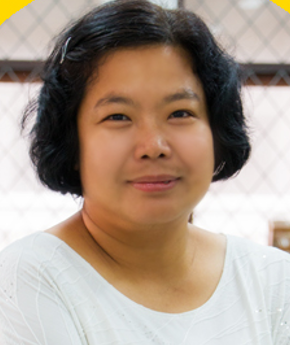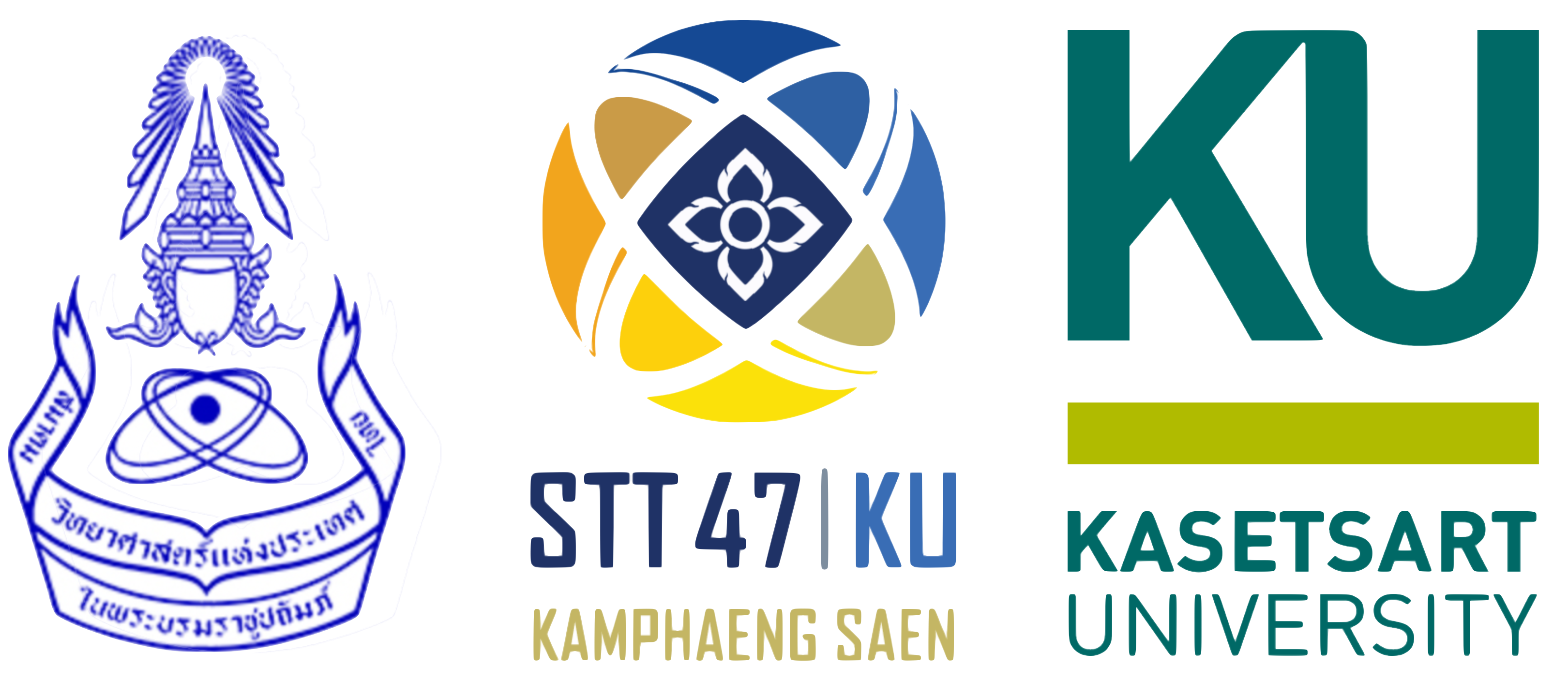Sessions

SESSION A-Innovation Impacts Driven SDGs
Chair: Dr. Mati Horprathum
Co-Chair: Asst. Prof. Dr. Narit Triamnak
Co-Chair: Asst. Prof. Dr. Kheamrutai Thamaphat
According to the COVID-19 pandemic presents, global disruption has been being violently accelerated widespread. Meanwhile, technological innovations have been being highlighted as the potential solutions for distressed circumstances in such disruption era which can enable daily life activities such as works, businesses, industrials or educations to continue throughout the pandemic. The technological innovations can also significantly contribute to sustainable development and generate additional opportunities of the Sustainable Development Goals (SDGs) success. Hence, the technological innovations are crucial and need to be accelerated and scaled to strengthen the economic and social impact developments, especially, the SDGs. This session is to share new ideas, opportunities and the technological innovations among students, scientists, researchers, professionals, and innovators with an integrated approach including science, technology, and innovation (STI) that can aid to the achievement of SDGS. The presentation and discussion are comprehensive on the state-of-the-art expertise, emerging issues, crucial knowledge, and product development processes of innovations as well as the “innovation ecosystem” which will facilitate the STI knowledge based for healthcare, agriculture, environment, education, media and furthermore.

SESSION B-Math Stat Comp for SDGs: Sustainable Solutions [For this session, ONLY full papers for publishing in the proceedings book will be considered.]
Chair: Assoc. Prof. Dr. Chartchai Leenawong
Co-Chair: Dr. Witchaya Rattanametawee
Co-Chair: Dr. Punnarai Siricharoen
This session welcomes all researchers in Mathematics, Statistics, Computer Science, and related fields to present and exchange their academic views on the latest and novel research findings. The session’s theme is, but not limited to, using the aforementioned fields to serve as sustainable solutions for achieving the 17 Sustainable Development Goals set by the United Nations.

SESSION C-Physics for Life in Space
Chair: Dr. Suparerk Aukkaravittayapun
Nowadays, human life obviously depends much on technologies and innovations, life on earth has been forced to adapt new changes in order to catch up and utilize the new technologies and innovations. Ideas of life in space colonies has also become more and more realistic with even more advanced developing technologies and innovations. Human life, in this case, not only depends on but hangs by technologies and innovations in all aspects, such as food, air, energy, medicine, safety, transportation, communication, etc.,. To realize such ambitious space exploration, Physics plays as an essential role of new technologies and innovations to support life in space. However, there are still many crucial unsolved problems involved Physics inevitably which needs to be overcome to realize and make life in extreme conditions possible and comfortable. This session welcomes presentations from a wide spectrum of Physics to address (but not limit to) the possible solutions to current & future problems or to understand the unknown for better human life on earth and in space.

SESSION D-SDG Challenges: Chemical Solutions for Sustainable Society
Chair: Prof. Dr. Vudhichai Parasuk
Co-Chair: Prof. Dr. Sumrit Wacharasindhu
Co-Chair: Prof. Dr. Patchanita Thamyongkit
Co-Chair: Assoc. Prof. Siwaporn Meejoo Smith
Co-Chair: Assoc. Prof. Pattaraporn Kim
Global warming and climate change are the grand challenges of the century. Although chemicals and chemical products make a better living for humankinds, it is undeniable that production processes and themselves cause harm to our environments and health, besides the global warming. To cope with these stagnant problems, the United Nations has launched “the 17 Sustainable Development Goals (SDGs)” campaign and persuade nations to join this program. In response to the program, Thai government has devised the BCG model (B=Bioeconomy, C=Circular Economy, G=Green Economy) to plan the nation economy development. Chemists have put considerable efforts towards this direction and established a new direction called “Green Chemistry”. Today, there are numerous publications in the area of Green and Sustainable Chemistry and the number is expanding. This implies the increasing importance of this field in chemistry. In the 47th International Congress on Science, Technology and Technology-based Innovation, presentations and discussions in the session “SDG Challenges: Chemical Solutions for Sustainable Society” will be focused in four following areas:
- Green Materials for Environmental Protection and Remediation
- Green Materials for Clean Energy
- Green Materials for CO2 Utilization
- Green Chemical Processes

SESSION E1-Impact of Biological Science towards SDGs: Active Learning for Biological Science Classes
Chair: Assist. Prof. Dr. Noppadon Kitana
Co-Chair: Asst. Prof. Dr. Ekaphan Kraichak
With this era of learning, 21st century skills are important for this generation. Biological sciences is one of the basic disciplines for SDGs. Previously, biological science classes were full of contents and memorization. Do we still need contents in classes? How can we develop 21st century skills in our students? We would like to invite all instructors to share your experiences in active learning or other learning methodology that can develop the required skills and knowledge in biological sciences in all areas, from molecular biology through ecology.

SESSION E2-Impact of Biological Science towards SDGs: Biological Sciences towards SDGs
Chair: Prof. Dr. Chanpen Chanchao
Co-Chair: Prof. Dr. Supachitra Chadchawan
In order to reach SDGs, biological sciences research is one of the important pieces. The studies of life sciences in all disciplines and taxa are welcome to share your recent discovery in this conference. These include the researches in microbes, protozoans, plants, animals and human from molecular, cell, whole organism, and population through ecological system levels.
Recording
SESAMOLIN: A VERSATILE PRECURSOR
FROM SESAME SEED FOR DERIVATIZING
BIOACTIVE LIGNANS
Session E2_INV002 Preecha Phuwapraisirisan
Passcode: LQ=+q5UZ
